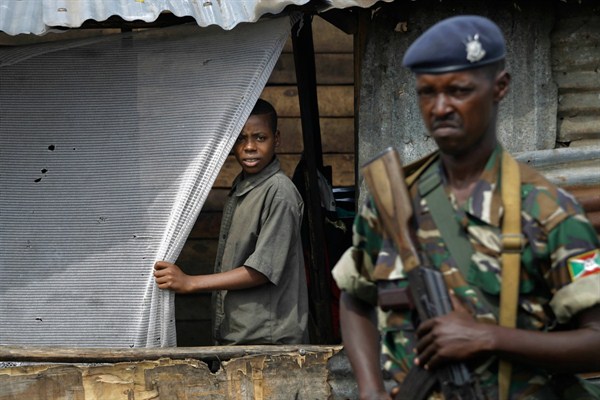BUJUMBURA, Burundi—Four years after President Pierre Nkurunziza decided to run for a controversial third term, leading to widespread protests and a government crackdown that killed more than 1,200 people and forced 400,000 to flee, this small East African country is still in the throes of political turmoil. With new elections less than a year away, tensions are rising as the government tightens its grip. In a report released Wednesday, United Nations investigators warned of another wave of possible atrocities ahead of the election amid “a general climate of impunity” in Burundi, where Nkurunziza’s supporters portray him as a “divine” leader.
Even though Nkurunziza said he won’t run again next May, many Burundians are wary. Last year, the ruling party—the improbably named National Council for the Defense of Democracy-Forces for the Defense of Democracy—held a national referendum that approved changing the length of presidential terms from five to seven years, potentially allowing Nkurunziza to stay in power until 2034. Observers criticized the government for coercing people into voting for the change.
Violence has escalated in Burundi since the beginning of the year, when prominent opposition figure Agathon Rwasa registered a new political party, the National Congress for Freedom, which is now the main opposition group in the country. According to an exiled group of reporters known as SOS Medias Burundi, which anonymously posts on-the-ground journalists’ accounts on social media, party members have been arrested, beaten, disappeared and even killed by the authorities and its affiliated youth militia.

